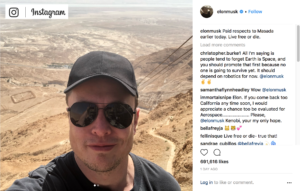Twitter’s board has accepted an offer from Tesla owner Elon Musk to purchase the social media corporation and privatize it, the company said on Monday.
According to the press release, the cash deal cost Musk $54.20 per share and is valued at a total of approximately $44 billion.
In a tweet following the agreement, the billionaire Space-X CEO wrote: “Free speech is the bedrock of a functioning democracy, and Twitter is the digital town square where matters vital to the future of humanity are debated,” Musk said in a statement included in the press release announcing the $44 billion deal. “I also want to make Twitter better than ever by enhancing the product with new features, making the algorithms open source to increase trust, defeating the spam bots, and authenticating all humans. Twitter has tremendous potential — I look forward to working with the company and the community of users to unlock it.”
♥️ Yesss!!! ♥️ pic.twitter.com/0T9HzUHuh6
— Elon Musk (@elonmusk) April 25, 2022
But Musk’s advocacy for freedom isn’t limited to speech on social media. Back in 2018, he visited Israel and climbed to the top of Masada. There he posted on his Instagram, “Paid respects to Masada earlier today. Live free or die.”

This experience may be what inspired his dogged mission to make Twitter a platform for free speech.
The shortcode is missing a valid Donation Form ID attribute.
The siege of Masada
The siege of Masada was one of the final events in the First Jewish–Roman War, occurring from 73 to 74 CE on and around a prominent hilltop near the Dead Sea. The siege is known to history via a single source, Flavius Josephus, a Jewish rebel leader captured by the Romans, in whose service he became a historian. According to Josephus, the siege led to the mass suicide of the Jewish rebels in the mountaintop palace built by King Herod in 37 BCE. This description of mass suicide is not supported by archaeological investigation.
The Roman army could not access the mountaintop via direct attack, so they encamped at the base, building a wall around the mountain and laying siege. A ramp was constructed of beaten earth, and the Romans finally breached the wall of the fortress on April 16, 73 CE. According to Josephus’ account, they discovered the food storerooms ablaze and the bodies of the rebels who had killed each other rather than be taken captive.
“The Jews hoped that all of their nations beyond the Euphrates would join together with them to raise an insurrection,” Josephus wrote.
William Whiston, who translated the works of Josephus in 1974, and two women survived the mass suicide by hiding inside a cistern along with five children. Josephus recorded their reports of the speech by Eleazar ben Ya’ir, the head of the zealots, before their final acts:
“Since we long ago resolved never to be servants to the Romans, nor to any other than to God Himself, Who alone is the true and just Lord of mankind, the time now comes that obliges us to make that resolution true in practice … We were the very first that revolted, and we are the last to fight against them; and I cannot but esteem it as a favor that God has granted us, that it is still in our power to die bravely, and in a state of freedom.”
The deal still requires shareholder and regulatory approval to take Twitter private, which could take a half year.
The shortcode is missing a valid Donation Form ID attribute.



